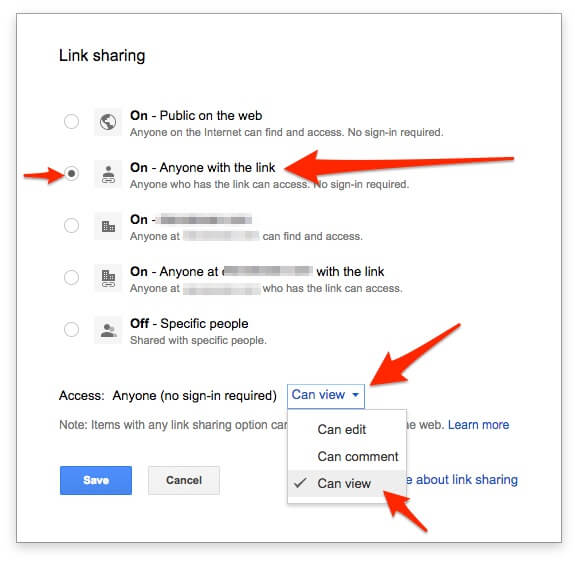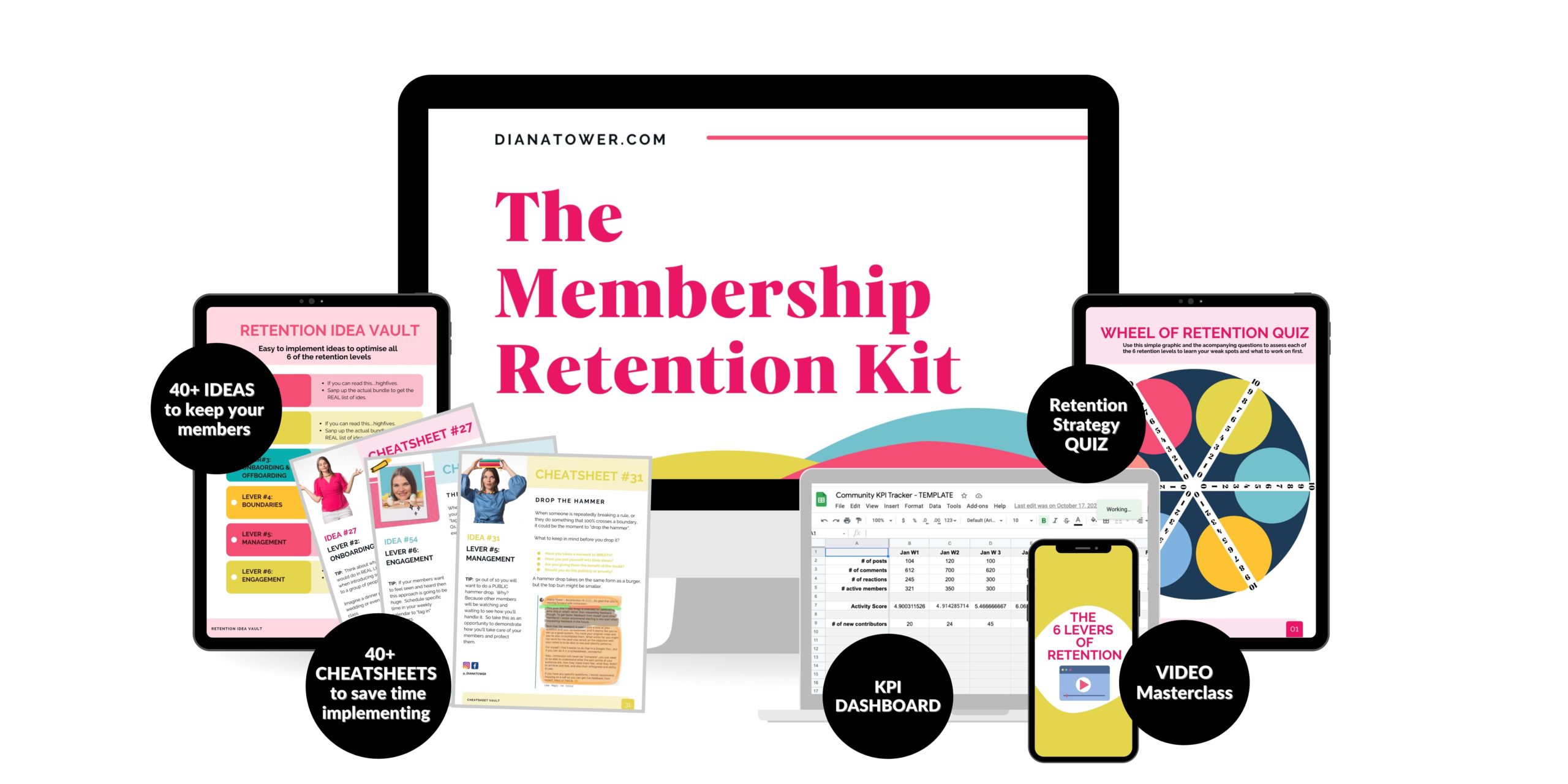Chapter 11 —
How to Protect Your Community From Self-Promotional Drama and Foster Quality Conversations and Relationships.
Alrighty folks, now we’re getting to the good shit…well actually it’s bad shit when it's in your community, but boy is this chapter going to help you clean up shop, or better yet keep things clean to begin with.
If you happen to run a free Facebook group this is going to be WAY worse for you my friend. Sorry to say it but a huge portion of your members are simply there to do customer research, find clients and basically hang out in there like a leech. Sucking all the blood they can get.
In a course community self-promotion is still a thing though. Some people just see any community as “fair game” or their are quasi-delusional and believe what they are doing is alright.
The first thing you need to do, to arm yourself against this bullshit is make it super clear what is and isn’t ok and what your expectations are of your members. Thats right folks…we are talking guidelines. I know…super sexy right.
What to include in your guidelines.
A lot of people get stuck on this. What the hell should I put in my guidelines? Should I be a hard ass or be a supportive friend? These are all valid questions that you need to answer with your personality and business in mind.
For example, if you are a super friendly and fun person BUT you don’t want people to do a couple things…be friendly and fun throughout your guidelines but drop the hammer with some super clear and strong do’s and don’ts.
So in terms of specifics here are the basics that you will probably want to get in writing. It’s easier to call someone out down the line when you have things in writing. That way you can reference it when you call someone out.
- The purpose/mission of your group. What’s the point of your group? What is everyone there to do? What is everyone working towards? This is going to be super easy since everyone will be taking one course and looking to gain the benefit of that course.
- How can members take advantage of the group and get the most from it?
- Posting guidelines. When someone posts what do they need to include? This might be having a specific title, like we do in Accelerator. For example [ZTL – M2- I’m not sure if I should build my website yet]. Notice what happens when someone reads that title. We know a lot about the student without reading anything else. We know they are taking the ZTL course, that they are in Module 2 and their issue is clear as well. It makes it so much easier to reply and it also allows other members to know if they can offer insights here or simply keep scrolling.
- Specifically tell people what is NOT allowed. I know we want to be positive all the time but laying down the rules is something that you need to do.
If you don’t want people posting links to their websites…say that. - If you don’t want people PMing members and promoting themselves…say that.
- If you don’t want people to post videos…say that.
- Specifically tell people what is NOT allowed. I know we want to be positive all the time but laying down the rules is something that you need to do.
- There are going to be situations when you need to delete a post, yes dude…that is going to happen. So be clear on what those situations are and mention it upfront. That way you can simply delete it without having to give an explanation (saving you time and sanity points).
What to avoid.
One thing I wanted to mention on the flip side of things is to be aware of being TOO negative. Having a NO list might feel great to you but it might not have the same effect on your members.
Here’s the thing though…I would much rather you were a bit too heavy on the no side, than to be to permissive. You see, guidelines can change dude. If you feel like you should ease up down the line…then go for it.
You’re the boss.
How should you present or deliver the guidelines?
There are many ways and formats to present your guidelines and I’m gonna outline the most common options. This way you can choose one option or do all 4!
Google Doc
Ah yes. Good old Google doc! This is by far the simplest, easiest version of guidelines. Simply write up your guidelines in a Google doc, change the share settings to allow people to view it, and share a link in the community..

Pinned post
Another option is to create a post in your Facebook group (writing out all the guidelines and possibly including an image) and then pinning that post to the top of the group’s wall. You can also share a link to the Google Doc in the pinned post. 😉
You can also write up your guidelines in an email that you send out when members first join your course. You can simply add a link to the Google doc in one of your onboarding emails. This is a great option as it puts it in their inbox and makes the excuse of “I didn’t see it” less likely.
As a part of an Ultimate Guide to getting the most from your community.
This is something that I did recently for IWT’s Accelerator program. I received a lot of the same questions, over and over again and rather than simply answering them over and over again, I wrote an ultimate guide that students can search to find answers to pretty much ANY question they might have about how the program works.
Take a page from the book of Jayson Gaignard. ASK, PRAISE, GIVE.
Jayson Gaignard runs Mastermind Talks (MMT), is the author of Mastermind Dinners and launched his own podcast, Community Made in 2017.
MMT is a invite-only $10k weekend retreat and community for entrepreneurs, with a lower acceptance rate than Harvard. Talk about awesome!
Anyhoo, he was hiring a Content and Community Manager in mid 2017 and a couple of my friends thought I’d be a great fit. It was funny as I knew the job wasn’t for me (it’s a full time position and I wasn’t available for full time) but I wanted to connect with Jayson and offer any help or insights I could (he’s a really lovely person and I love what he’s doing).
Fun fact: I made it to round three for a live interview call!
It was lovely to get to know Jayson and I was able to help him with his Facebook group for MMT alumni. That is when I first saw his approach to posting guidelines.
His guidelines are simple yet powerful.
RULES: We want this group to be of value to everyone. This community runs under the ASK, GIVE and PRAISE model.
ASK = You're asking for something (advice, feedback, an intro)
GIVE = You're giving something (conference tickets, expertise, etc…),
PRAISE = You're praising a member in the community for going above and beyond.
I adore this approach to posting. It’s so simple, yet sets the tone for his community. It’s not a place to take, it’s a place to give, get help and make other people feel great.
When I reached out to him to make sure it was ok to share this approach in this guide he sent me an audio note and shared the power of this approach, which I wanted to share with you as well.
“The method ASK, GIVE and PRAISE has worked exceptionally well for us, because it helps us steer clear…it’s a pretty clear line in the sand as far as avoiding people soliciting or people talking about themselves. Like, “Oh I just came out with this blog post” or those kinds of things, self-promotion. So it’s work really well.” – Jayson Gaignard
Now I’m not saying that you need to start using ASK, GIVE, PRAISE, but how might you take this idea and apply it to your own business?
What is it you want your people to do? ASK, SHARE, WIN, SUPPORT, CONFESS, etc.
How to enforce your guidelines without being a dick or making people scared to post and participate.
Oooo doggie…now we are talking. You’ve got guidelines and you’re itching to enforce them.
Oh wait…what? You aren’t excited about the enforcement part? You’re actually terrified and want to just crawl back into your comfort zone like a snugglie cocoon?
I get it dude.
You don’t wanna be the bad guy. You just want to have fun and support people. Well I can tell you here and now that if you don’t enforce your guidelines you’re actually doing your people a disservice.
Imagine that you are one of your members that follows the guidelines by the book. And then sees some douchebag promoting themselves and you not doing anything.
How does that makes them feel? Probably a couple ways. Annoyed that someone else isn’t following the rules and pissed off that YOU aren’t stopping it. OR maybe they think that that person has some sort of agreement with you…when they DON’T!
So here’s the deal. Once you create the guidelines…they apply to everyone across the board. No exceptions please. Be consistent.
Now. What are you actually supposed to DO when shit happens?
Picture it. You log into your Facebook to check on the community (during your allotted time no more no less.. remember) and you see it.
A post that seems to be “helping” others but there is a link out to their latest article (on the same subject), or maybe it’s their new website that they are so excited to share, or maybe they are bold enough to post a link to their sales page for a “review”.
Ok…breath. Let the “WTF” thoughts wash over you and be with those feelings.
You might be thinking something along the lines of,
“What the literal fuck does he think he’s doing? Didn’t I make myself clear…no freaking links in your posts dude. It’s just not ok. No one else is doing it. And here you come linking it up. Arrrggg. I don’t want other people to see it and think that it’s ok. Shit. MORE people will probably start doing the same. WHAT SHOULD I DO?”
Great question.
What SHOULD you do?
Let’s do a quiz. Which option would YOU choose?
- Leave it up there. You don’t want to hurt his feelings.
- Delete it and act like nothing happened. You’re the admin…only you and that douche will know and he knows what the guidelines are.
- Copy the text of the post and shoot him a PM explaining that you removed the post (as it doesn’t follow the guidelines for the group)..
- Do nothing but assume the fetal position below your desk. Why can’t people read? Why in God’s name did I think a community would be a good thing? FML!!!
- Ok…so obviously A is out. Come on princess. You won’t hurt his feelings.
- D is out as well, and I’d suggest meditation or something to relax dude…this isn’t really that big a deal.
- B and C…well actually those are two great options and you get to choose which works best for you.
If you simply want to delete a post…go for it. Make sure that this kinds of response is mentioned in your guidelines though.
Something like: Any posts that break these guidelines will be removed.
Now, some people will message you and ask what happened, like they didn’t know, and you can simply say that it broke the community guidelines and then link to them.
Sometimes people don’t realize what they are doing though. It’s like they get hypnotized and just start doing weird shit without even realizing it’s self-promotional. That’s why I recommend simply saying that their post broke the guidelines.
Now C is another option (the one that I take personally) and it’s the same as B but there is one step added. You copy the text of the post and then shoot them a PM. Explain that their recent post didn’t follow the guidelines and that it has been removed but that you copied the text for them. Paste the text in the message and send.
To delete or not to delete?; how to handle posts that break your guidelines.
There is another option for handling posts that break your guidelines, and I like to call this the “call them out publicly” technique. It’s just like it sounds. So if someone posts something that isn’t appropriate or does not follow specific posting guidelines you simply leave a comment on their post letting them know and asking them to update the post to correct it.
Note: This doesn’t apply to self-promotional posts. In those cases I delete the posts (with or without notification).
Again, I know this might sound harsh or not fun at all, but it’s an important part of building and protecting the integrity of your community. It’s not sexy, and no one talks about it publicly (until now) but it needs to be done.
Plus, on the bright side, the more consistently you do this from the beginning the LESS it happens. That’s right. People aren’t stupid. They learn from what you do and also what others in the community do.
Keep Reading...




